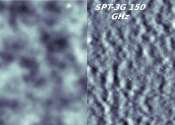Technical trials for easing the (cosmological) tension
Thanks to the dizzying growth of cosmic observations and measurement tools and some new advancements (primarily the "discovery" of what we call dark matter and dark energy) all against the backdrop of General Relativity, ...









